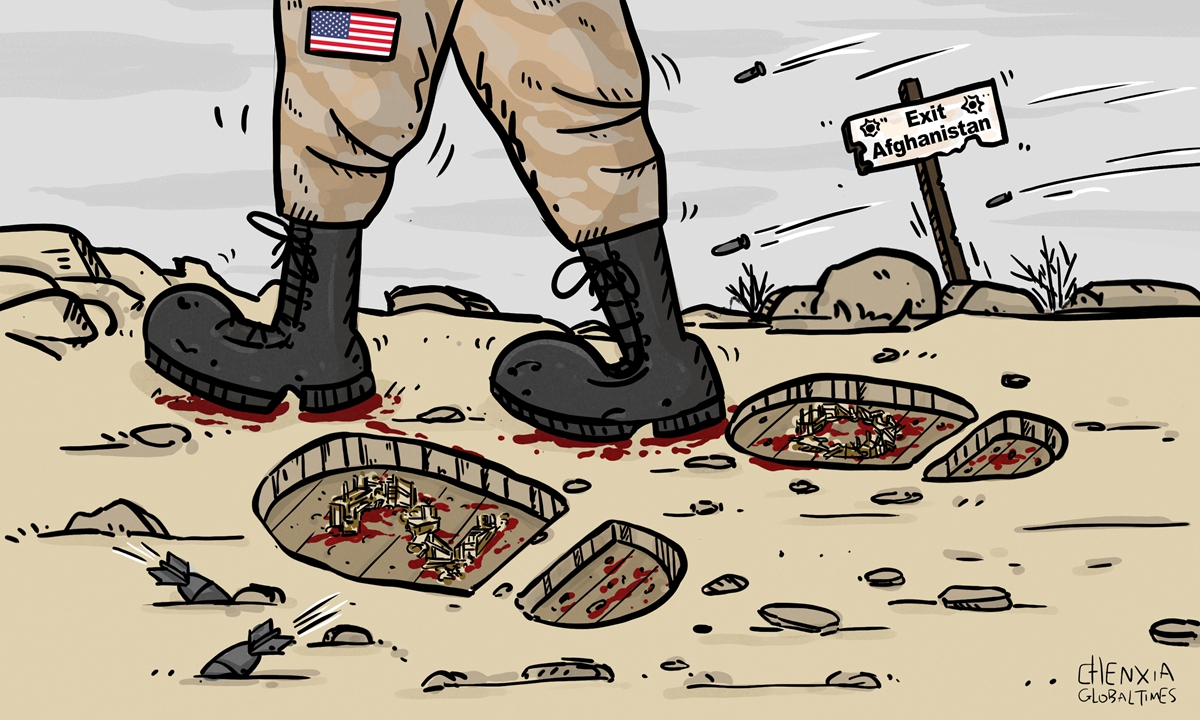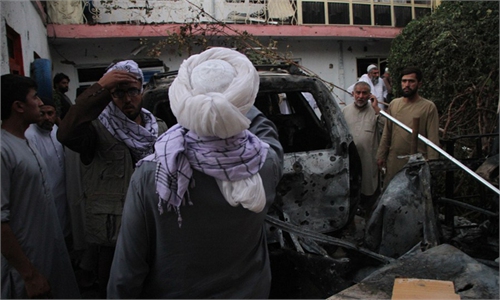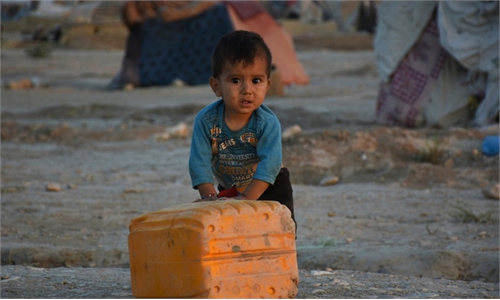
Illustration: Chen Xia/GT
The US Defense Department said Friday that it is committed to offering condolence payments to relatives of the 10 people who were killed in an errant US drone strike in Kabul, Afghanistan in August. The statement was to some extent mea culpa for the controversial drone attacks, but it was also undoubtedly a utilitarian gesture by the US rather than a heartfelt move.The errant drone strike has put the US into several moral dilemmas. Washington has been strongly condemned by the international community, especially by local Afghan people. Over a month after the attacks, the US offered a condolence payment in a bid to save face. Meanwhile, considering that the US may need to deal its relationship with the Taliban well in the future and try to influence Afghanistan, the statement of the US Defense Department is also to some extent a gesture to the Taliban.
However, far more than 10 Afghan civilians died during US troops' withdrawal from Afghanistan. In the deadly blast outside of Kabul's airport on August 26, about 170 people died, with at least 200 wounded. It was later proved that most of the dead were shot to death by US troops at the scene. Not to mention more than 47,000 Afghan civilians were killed in the Afghan war over the past two decades.
The US has kept silent about compensation for casualties of these civilians. This is partly because the US' war responsibility in Afghanistan may be difficult to define from a legal perspective. But this reflects that the US' attitude toward the deceased is based on the principle of benefiting the US. The US' war responsibility in Afghanistan is a mess. Afghanistan has poor ability to hold the US legally accountable. The subject of accountability is also not clear. Unless the US initiates a serious investigation itself, it would be hard to hold the US legally accountable for the series of crimes it committed in Afghanistan.
But the drone attack that killed 10 Afghan civilians including seven children has been exposed to the world under media pressure. The follow-up measures proposed by Washington look more like a stopgap measure, even a perfunctory move to minimize the issue. Besides, it is unlikely that Washington will offer a face-to-face apology to relatives of the 10 Afghan people as they have demanded. Instead, Washington will likely characterize the whole affair as a mistake in decision-making, obscuring it in the form of condolence payments, and avoid more explicit responsibility. According to media reports, most ex gratia payments are small - usually between $2,500 and $5,000. One of the condolence payments issued in 2019 was only $131.
Over the past 20 years, whether it was during the Afghanistan war, the Iraq war or the global war on terrorism, the US actually paid the price for its attitude and irresponsible behavior. The US has used drone strikes and targeted elimination to attack. But as said by Chris Woods, director of the UK-based monitoring group Airwars, "You cannot bomb cities and towns without significant civilian harm."
At the same time, the irresponsible actions of US soldiers, such as burning the Koran and blaspheming Islam, have intensified the anti-US sentiment among the Islamic countries. This provides the soil for the breeding of extremism and terrorism.
The US' utilitarianism has brought disaster and suffering to the world. It has also caused great losses and troubles to itself. But it seems the US still has not figured out that what goes around comes around.
The author is a professor at the Middle East Studies Institute of the Shanghai International Studies University. opinion@globaltimes.com.cn



